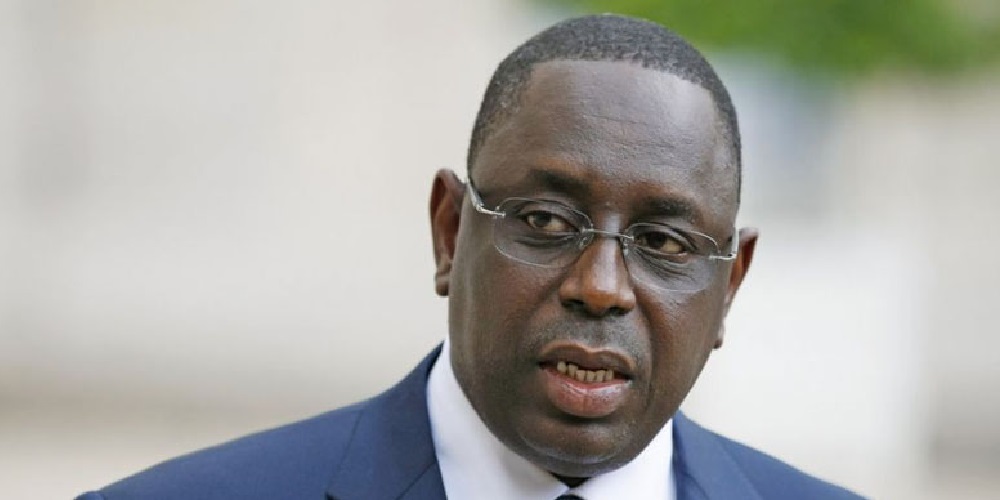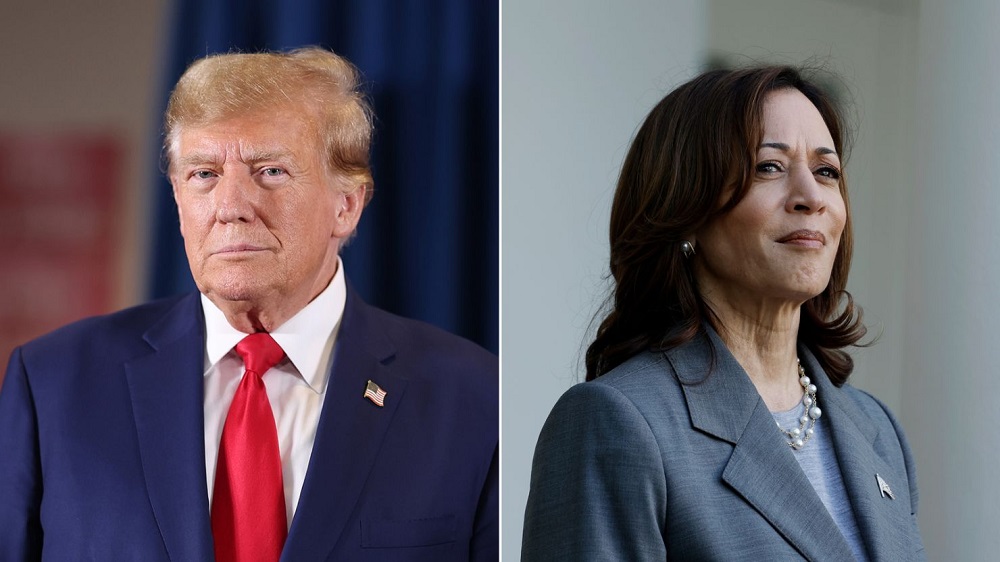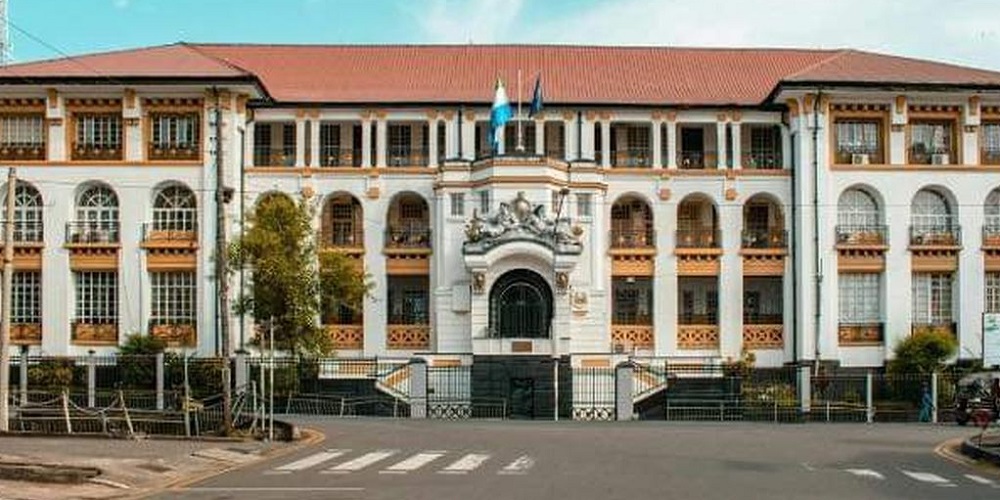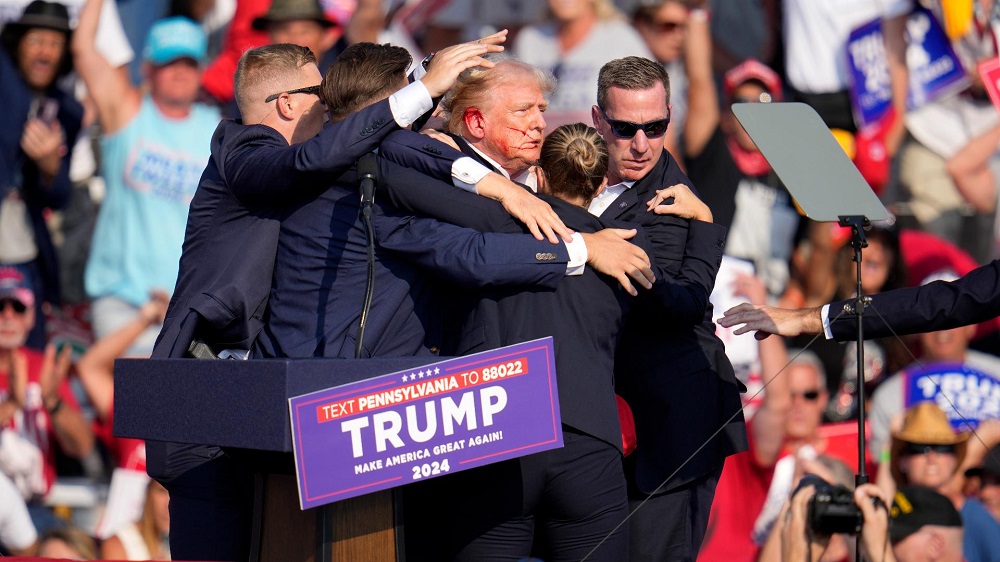Foreign
Senegal Talks Rule Out Presidential Vote Before Sall’s Term Expires

Political crisis talks called by Senegal’s President Macky Sall on Tuesday reached a “broad consensus” that the presidential vote he postponed could not be held before his mandate ends on April 2, multiple participants told AFP.
Sall’s two-day “national dialogue” aimed at setting a date for the delayed election also advocated the head of state remain in office beyond the end of his term and until his successor is installed.
The conclusions go firmly against the view of a widespread political and civic movement, which is demanding the poll be held before April 2.
The traditionally stable West African country is grappling with its worst political crisis in decades after Sall’s last-minute deferral of the February 25 election.
The Constitutional Council overturned the delay and Sall on Monday launched two days of talks to set a new date — boycotted by major political and social actors.
Two committees were formed to discuss the election date and the organisation of the period after April 2.
The first committee came to the almost unanimous conclusion that the vote could not be held before April 2, four participants told AFP.
Two participants, Amar Thioune and Mamadou Lamine Mane, even said there was a “broad consensus” that the presidential election could not be held before June 2.
The second committee came to a “broad consensus” in favour of President Sall remaining in office until a successor is sworn in, six participants told AFP on condition of anonymity.
Some taking part in the talks proposed the vote should take place in July, the same sources told AFP, referring to discussions rather than any written document.
The two committees were due to present their conclusions to the president late Tuesday.
No indication was given as to when Sall would then make a decision.
Last week, he said he would set a date “immediately” if there was a consensus.
– ‘Get it over with’ –
The president has previously cast doubt on the feasibility of staging the vote before the end of his term.
On Monday, he proposed that it could be held by the start of the rainy season in June or July.
Sall had reiterated several times in recent days that his mandate would end as planned at the beginning of April.
But on Monday, he left open the possibility of an extension.
“If there’s a consensus, I’m prepared, in the best interests of the nation, to take it upon myself to stay on even if it’s not my choice,” he said.
“It’s not what I want because I’m in a hurry to get it over with and leave,” he added.
The February 3 decision to postpone the presidential election plunged Senegal into turmoil, with four people killed in clashes.
Sall, in power since 2012, said he called off the vote over disputes about the disqualification of potential candidates and fears of a return to unrest as in 2021 and 2023.
The opposition called it a “constitutional coup”.
The Constitutional Council, the top constitutional body, ruled the delay unlawful and called for the vote to be organised “as soon as possible”.
A possible extension of Sall’s term is likely to raise more constitutional concerns.
The Council said on February 15 that Mr Sall was due to leave office on April 2.
– Boycott –
The movement galvanised against the election delay says the president is playing for time, either to benefit his political allies or to remain in power.
Seventeen of the 19 candidates approved by the Constitutional Council to stand in the presidential poll boycotted Sall’s national dialogue, as did the major civil society collective Aar Sunu Election (Protect Our Election).
The collective had called for shutdowns across the country and a general strike on Tuesday, demanding the poll take place before Sall leaves office.
But the call appeared to go largely unheeded in central districts of the capital Dakar.
“We live from day to day, so we can’t afford to go a day without working, otherwise our families won’t eat,” said shopkeeper Saer Dieng, 37.
AFP
Foreign
Trump kicks against Harris taking over Biden campaign funds

Republican presidential candidate Donald Trump’s campaign, on Tuesday, filed a complaint with the Federal Election Commission, saying that U.S. Vice President Kamala Harris could not legally take over funds raised by President Joe Biden’s reelection campaign.
Biden, an 81-year-old Democrat who was in a tight race with Republican challenger Donald Trump, endorsed Harris when he ended his reelection bid on Sunday.
Harris quickly took control of Biden’s campaign accounts and on Monday night wrapped up the nomination by winning pledges from a majority of the delegates who at next month’s party convention will determine the nominee, according to her campaign.
The fight over the accounts, which had roughly $95 million in the bank at the end of June, is part of a multi-pronged effort by Republicans to stymie Harris’ bid to lead the Democratic ticket.
The Trump campaign argued that Harris undertook a “brazen money grab,” according to the filing by David Warrington, the campaign’s general counsel. In the filing, which Reuters said it saw, Warrington said Harris was in the process of committing what he described as the “the largest campaign finance violation in American history.”
Saurav Ghosh, a lawyer at the Campaign Legal Center, a non-partisan watchdog group, has said that because Harris was already part of “Biden for President” as the vice presidential candidate, her claim on the money should be secure.
In any case, election regulators are unlikely to resolve the issue before the Nov. 5 presidential election.
The FEC said they were unable to comment on unresolved enforcement matters.
U.S. Vice President Kamala Harris laid out her argument against Donald Trump at the first rally of her presidential campaign on Tuesday, while a new poll showed her with a slight lead over her Republican rival.
Harris’ campaign has said it had raised $100 million since Sunday, when Biden stepped back from the campaign and endorsed her – exceeding Biden’s remaining tally in just a few days. Her campaign brushed off the FEC complaint.
“Republicans may be jealous that Democrats are energized to defeat Donald Trump and his MAGA allies, but baseless legal claims – like the ones they’ve made for years to try to suppress votes and steal elections – will only distract them while we sign up volunteers, talk to voters, and win this election,” said Harris campaign spokesperson Charles Kretchmer Lutvak.
Foreign
Sierra Leone Court Sentences 11 Soldiers, Policemen For Failed Military Coup

Two female police officers were also sentenced. Ramatu Kamanda Conteh received a 30-year sentence for harboring Koita.
Ahigh court in Sierra Leone has sentenced 11 people, including soldiers and police officers, to lengthy prison terms for their role in a failed military coup attempt last year.
The court’s verdict follows an attack on November 26, 2023, when gunmen targeted multiple military barracks and a prison, freeing about 2,200 inmates and killing over 20 people.
Reuters reports that, after the failed coup attempt, 12 people were charged with treason in January.
However, on Monday, 11 people were convicted in a unanimous jury verdict on 20 counts, including treason, murder, and unauthorized use of military uniforms.
The twelfth accused, Bai Mahmoud Bangura of the opposition All People’s Congress (APC) party, is being tried separately due to health concerns.
Amadu Koita Makalo, a retired army major and former bodyguard to ex-president Ernest Bai Koroma, was sentenced to multiple terms totaling 40 to 70 years in prison, with the sentences to be served concurrently.
Two female police officers were also sentenced. Ramatu Kamanda Conteh received a 30-year sentence for harboring Koita.
The government said the coup bid was led mostly by bodyguards to Koroma, who was later charged with four related offences, before the government decided to let him leave the country on medical grounds.
However, Koroma condemned the coup attempt and his lawyers called the charges “trumped up” and part of a “political vendetta”.
Tensions have resurfaced in Sierra Leone, nearly two decades after the civil war from 1991 to 2002 that claimed over 50,000 lives.
Foreign
Trump Shooter Searched Online For Info On John F. Kennedy Assassination A Week Before Rally, FBI Says

Despite gaining access to Crooks’ electronic devices, including his cellphone, investigators have yet to uncover any significant information regarding his motive or ideology.
FBI Director Christopher Wray revealed during a House Judiciary Committee hearing on Wednesday that the gunman who attempted to assassinate former President Donald Trump at a Pennsylvania rally on July 13 had conducted a disturbing Google search about the assassination of President John F. Kennedy just one week prior to the shooting.
The FBI said it was still working to determine the motive behind 20-year-old Thomas Crooks’ actions, which resulted in the death of one attendee and injuries to Trump and two others, CBS News reports.
Despite gaining access to Crooks’ electronic devices, including his cellphone, investigators have yet to uncover any significant information regarding his motive or ideology.
Wray’s testimony highlighted the complexity of the case, as authorities strive to understand the reasoning behind Crooks’ violent actions. The investigation remains ongoing, with the FBI exploring all possible leads to shed light on this disturbing incident.
A chilling discovery was made on a laptop linked to Crooks. A search history revealed a disturbing query made on July 6, exactly one week before the Pennsylvania rally: “how far away was Oswald from Kennedy?”
This eerie search suggests Crooks may have been drawing inspiration from the infamous assassination of President John F. Kennedy by Lee Harvey Oswald in 1963.
Oswald fatally shot Kennedy from a sixth-floor perch at the Texas Schoolbook Depository in Dallas, with the Warren Commission later determining the distance between the two to be approximately 265.3 feet at the time of the deadly shot.
This striking search term stands out as a significant finding in the investigation, potentially offering a glimpse into Crooks’ motivations or mindset leading up to the attack. As authorities continue to probe the circumstances surrounding the shooting, this haunting query raises more questions about the influences and intentions behind Crooks’ actions.
Crooks fired shots from a rooftop approximately 400 feet away from the target.
The gunfire struck Trump in the ear and injured rally attendees.
According to FBI Director Christopher Wray’s testimony at Wednesday’s hearing, Crooks wielded an AR-style rifle and left behind a trail of evidence, including eight spent bullet cartridges found on the roof.
-

 News23 hours ago
News23 hours agoIwuanyanwu was a Heavyweight in all ramifications-Abaribe
-

 News22 hours ago
News22 hours agoTinubu, Southern Govs Mourn Iwuanyanwu
-

 News22 hours ago
News22 hours agoSokoto Governor, Aliyu’s Wife Holds Lavish Birthday As Guests Spray Dollar Notes On Her Amid Hunger, Hardship
-

 News22 hours ago
News22 hours agoProtest: President Tinubu In Closed-door Meeting With Traditional Rulers (Video)
-

 News23 hours ago
News23 hours agoTinubu’s Presidency Is Failing Nigerians – Afenifere
-

 News18 hours ago
News18 hours agoNationwide protest: ‘Airport Is Filled Up, Govs, Senators, Reps, Ministers Traveling Abroad’ — Fayose
-

 News23 hours ago
News23 hours agoIGP Orders DPOs, Their Men To Storm Vulcanizer Shops Ahead Of Planned Nationwide Protest
-

 News23 hours ago
News23 hours agoI Participated In Peaceful Protests For Democracy – Tinubu







